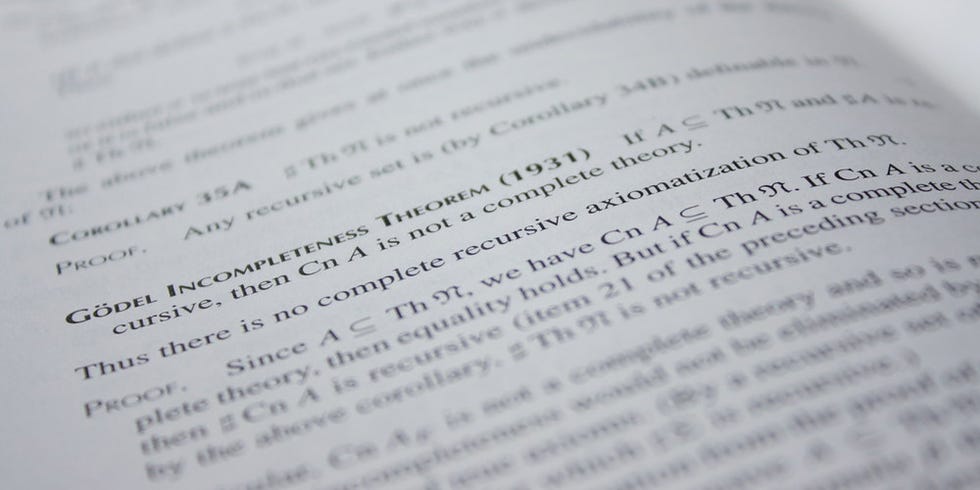Gödel’s work in mathematical logic was totally next-level. On top of proving stuff, Gödel also liked to prove whether or not it was possible to prove stuff. His Incompleteness Theorems are often misunderstood, so here’s a perfect chance to clarify them.

Gödel’s First Incompleteness Theorem says that, in any proof language, there are always unprovable statements. There’s always something that’s true, that you can’t prove true. It’s possible to understand a (non-mathematically rigorous) version of Gödel’s argument, with some careful thinking. So buckle up, here it is: Consider the statement, “This statement cannot be proven true.”
Think through every case to see why this is an example of a true, but unprovable statement. If it’s false, then what it says is false, so then it can be proven true, which is contradictory, so this case is impossible. On the other extreme, if it did have a proof, then that proof would prove it true … making it true that it has no proof, which is contradictory, killing this case. So we’re logically left with the case that the statement is true, but has no proof. Yeah, our heads are spinning, too.
But follow that nearly-but-not-quite-paradoxical trick, and you’ve illustrated that Gödel’s First Incompleteness Theorem holds.
Gödel’s Second Incompleteness Theorem is similarly weird. It says that mathematical “formal systems” can’t prove themselves consistent. A consistent system is one that won’t give you any logical contradictions.
Here’s how you can think of that. Imagine Amanda and Bob each have a set of mathematical axioms—baseline math rules—in mind. If Amanda can use her axioms to prove that Bob’s axiom system is free of contradictions, then it’s impossible for Bob to use his axioms to prove Amanda’s system doesn’t yield contradictions.
So when mathematicians debate the best choices for the essential axioms of mathematics (it’s much more common than you might imagine) it’s crucial to be aware of this phenomenon.
Πηγή: popularmechanics
